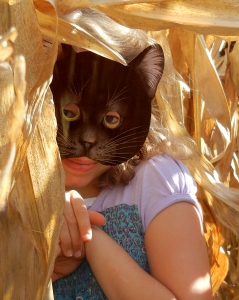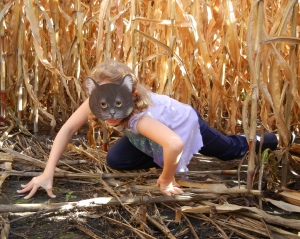 You get an idea for a story you can’t let go of. You know who the main character has to be. You remember a woman of about 30, tall, blonde, a bit of a neat freak. She is someone you met on a flight last year. You remember how everyone took notice of her. And just after the in-flight movie ended, she shared her deepest secret with you, a stranger she’ll probably never see again.
You get an idea for a story you can’t let go of. You know who the main character has to be. You remember a woman of about 30, tall, blonde, a bit of a neat freak. She is someone you met on a flight last year. You remember how everyone took notice of her. And just after the in-flight movie ended, she shared her deepest secret with you, a stranger she’ll probably never see again.
You flip open your laptop, and for the next five months, your story takes shape. Finally, your first draft is finished. You’re proud of what you’ve accomplished. You send it to your critique group, anxious for their praise. The e-mails roll in, and everyone says the same thing. Your MC is flat.
What? But I can picture her, I can still smell her perfume, I recall lots of people turning their heads as she passed. That tall, beautiful woman whose secret I’m keeping. All of this is not enough. You barely know her.
So how do you flesh out a character?
Before I write the first words of any story, I take each of my characters through a lengthy interview process. This goes beyond deciding upon their name, hair and eye color, birthday, country and town they live in.
I gained this good habit in a writing course a number of years ago. The instructor asked us to answer twenty questions about our main character as well as other prominent players in our story. I skimmed down the questions. “This could take hours, even days!” I moaned. “All I want to do is write my story.”
The instructor knew what she was doing. “Take your time,” she said. “Don’t answer the questions quickly. Think about your character. Put yourself in his/her shoes as you address each question.”
A few days later, I had mapped out my main characters. I was stunned at my intimate knowledge of these people. Yes, people. They had shifted from imaginary characters I dreamed up to flesh and blood, real people. I felt I knew them like I knew my friends…like I know myself. I e-mailed my instructor two words. Thank you.
You are going to spend a great deal of time with the characters in your novel. In order for your reader to cheer them on, to disagree with them, to understand them, and to cry with them, you need to get to know them–intimately.
Could you list ten things you know about your best friend? About your spouse or significant other? About your child? Think about your closest friend. How much do you know about the person you trust with your thoughts and feelings? What is it about them that you like? What is the glue that bonds your friendship?
As serious writers, we spend more time with the characters in our novels than we do with our friends. To write characters into reality, we have to get to know them. We must befriend them. Below is my 75 point questionnaire to ground you in the souls of your characters.
75 POINT CHARACTER DEVELOPMENT QUESTIONNAIRE
Name: (Are they named after someone in their family?)
Age and birthday:
Does MC share their birth date with anyone they know?
General physical description:
a. height
b. weight
c. eye color
d. hair color
e. any distinguishing features
Describe the place your MC calls home:
If MC is a child, describe their bedroom:
Type of neighborhood:
What is his/her occupation if an adult:
What are his/her chores if a child:
If child, grade in school:
Mother and/or wife’s name, background, and occupation:
Father and or husband’s name, background, and occupation:
Where does MC live (city, state, country, on a farm, in an apartment, in a research station on Mars)?
What landmarks are near them (park, shopping, friend’s house, beach, school, etc…)?
List all siblings, their names, ages, and one or more sentences to describe them and their relationship to your MC.
How does your MC view each of his family members and friends?
What is his/her position in the family? (parent, oldest, middle, youngest sibling, the pet?)
Pet(s) — What kind and how long have they had them?
How did they come to get this pet and/or what do they like best about their pet(s)?
Where do they keep their pet(s)? (horse boarded or in barn on property, fish tank in kitchen or bedroom, indoor or outdoor dog, etc…)
Favorite piece of jewelry or accessory they always or frequently wear: (earrings, watch, purse, shoes, etc…)
If female, what items does she always carry in her purse? (if child – list items in their backpack.)
If male, what photographs or information does he keep in his wallet?
Is he/she prompt or late for most things:
Organized, sloppy, etc…
Mode of transportation:
What options are available if their car broke down, if they missed their bus or train?)
Favorite sports:
Interests or hobbies:
Dress style:
Relationship to men and/or boys he/she knows:
Relationship to women and/or girls he/she knows:
Leader or follower: (he/she must be like others in dress, mannerisms, and taste? Marches to own beat?)
Their favorite expression: (Way cool!, No way! Whatever, Don’t get me started, etc…)
Habit: (bites fingernails when nervous or fingers necklace pendant, rubs hand over beard when thinking, etc…)
Their personality type: Glamour queen, no frills, down-to-earth, wishes he/she could disappear, jock, rugged, outgoing, know-it-all, etc…)
What are they good at (skills)?
What is their greatest ambition?
What is their best quality?
What is their worst quality?
Sense of humor?
Temper? What sets your MC off?
What things do they like?
What do they dislike?
Quirks:
Favorite foods and beverages:
Who is their closest friend and why?
Describe their perfect day.
How do they speak? (with an accent, stutters, lisps, in a monotone, etc…)
How do they walk? (with purpose, drags feet, limps, etc…)
What is their greatest fear?
What is their greatest regret?
What are their flaws? (lacks confidence, shy, speech impediment, fear of something.)
Based on their fears, dislikes, and, worst qualities, what problem would they least likely want to face?
Who does he/she love and care about? (parent, child, friend, pet)
To hear your character’s voice you need to take this one step further.
Instead of you filling in the blanks about your character, take what you learned from above and imagine you are having a conversation with your character or a letter exchange: Ask them to tell you in their own words…
Who are you?
What do you most want?
What freaks you out?
What is your first thought when you wake up?
What is the thought you fall asleep with?
Considering the challenges you have planned for your MC, ask – How would you feel if…?
What would you think if you heard your friend, sibling, parent, spouse say…?
What is the worst day you can imagine having? What could make it even worse?
What is the best day you can imagine having? What could top that?
If you inherited or won a sizable sum of money what would you do with it?
If you got a promotion at work, or if you aced your finals, who would you want to share this news with?
Now that you and your MC are best friends, go deeper.
What do you think is your best feature or personality trait?
If you could, what would you change about yourself?
Who do you wish you were more like?
What is the biggest secret you keep?
If a tornado or other disaster threatened to destroy your home in the next twenty minutes, what would you save?
You’re ready to write.




